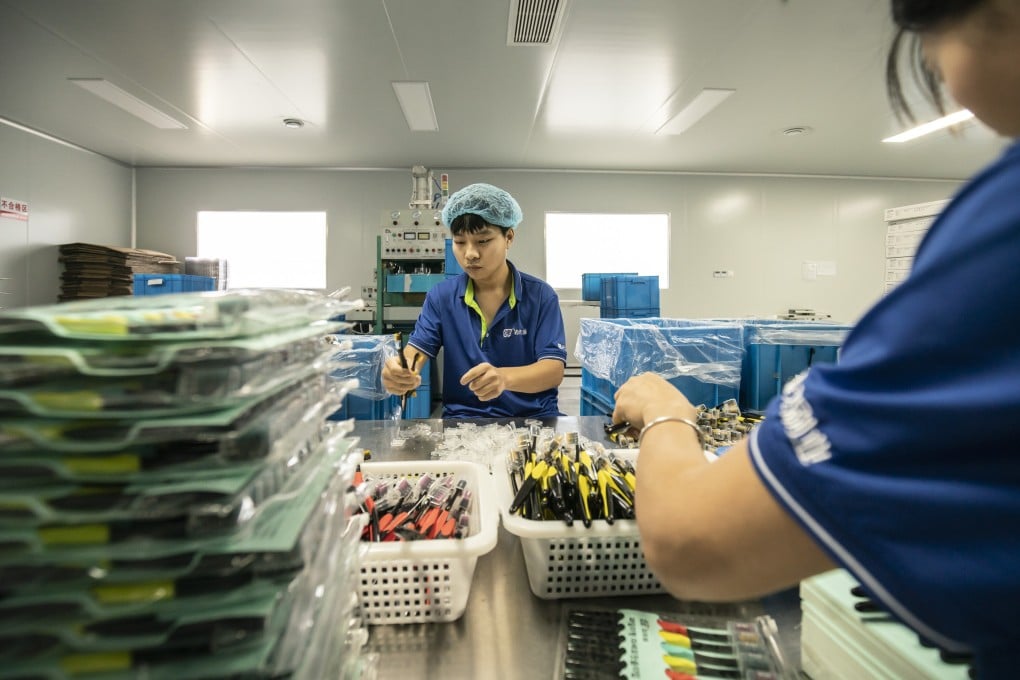Advertisement
China’s small manufacturers receive a Christmas boost as Covid-19 disrupts global supply chains
- Soaring demand for Chinese-made household products propelled the country’s exports to a record in November, and brought a windfall to thousands of small- and medium-sized manufacturers
- Mainland China has largely emerged from the Covid-19 crisis, with manufacturers back operating at full pace, while elsewhere production is compromised
Reading Time:3 minutes
Why you can trust SCMP
2

Small-scale manufacturers in China are enjoying a Christmas boom as the Covid-19 pandemic crimps production of goods in Europe and the US and wreaks havoc with global supply chains.
Starting in June, lockdowns around the world disrupted production and prompted overseas merchants to place their orders at mainland Chinese factories in time for the Thanksgiving and Christmas shopping season.
The soaring demand for Chinese-made household products propelled the country’s exports to a record in November, and brought a windfall to the thousands of small- and medium-sized manufacturers that churn them out.
Advertisement
Zheng Siming, owner of a fitness equipment maker in Shanghai, is one of the beneficiaries of the surging orders, and he admitted his unexpected jackpot was down to the coronavirus.
“This Christmas appears to be so different and special,” the 45-year-old entrepreneur said. “Our dumbbells (for fitness use) became bestsellers.”
The dumbbells, that sell for US$6 a pair to wholesalers in the US and Europe, have witnessed a surge in orders since July as people in the West started to spend more time at home amid social-distancing rules.
Advertisement
Select Voice
Select Speed
1.00x